How to Be a Scuba Diving Instructor Abroad
The following article on how to be a scuba diving instructor is authored by Mo.
“When are you getting a real job?” is a question I get asked just about every time I get on the phone with my dad.
I have been working as a scuba diving instructor in the Pacific over the last 5 years, but none of my friends or family seem to believe that I actually “work.” I guess I can’t blame them.
I imagine that it’s hard for anyone to fathom how I get paid to live on paradise islands, put on my bathing suit in the morning and walk down a pristine white sand beach to go to work. I know. Sometimes I pinch myself too.
It’s not often that people get to match their passion to a career.
The funny thing is, I lived 36 years of my life thinking I didn’t have a passion that I wanted to pursue with my life, that I didn’t know what I wanted to do in life. I was always envious of people who had passion in the arts, sports, music, entertainment, or anything – I never had a thing that I felt particularly crazy about.
But my time came when I decided to quit my 9-5 office job in New York City, get out of my comfort zone and embark on a solo journey to Southeast Asia in 2013. When I set out on a one-way adventure to SE Asia, I had no idea where I would end up. I didn’t have a plan.
All I knew was that I needed to get out of the rat race, explore the world, push my boundaries and expand my horizon. I wanted to feel alive.
But after backpacking for about 10 months and my funds started dwindling, I needed to figure out my next chapter.
Even though I wasn’t sure what I was going to do just yet, I was clear about one thing – I was not going back to my cubicle in New York City. I was done living like a hamster in a wheel. So how did I end up in paradise?
Table of Contents
- How to Become a Scuba Instructor
- What Is a Scuba Instructor?
- How You Can Become a Scuba Instructor
- How Much Does It Cost to Become a Scuba Instructor?
- How to Get a Job as a Scuba Instructor Abroad
- The Reality of Working as a Scuba Instructor Abroad
- Final Thoughts on Working Abroad as a Dive Instructor
- More on Working Abroad
- More Jobs Abroad
How to Become a Scuba Instructor
I was already a certified scuba diver when I began my backpacking trip to Southeast Asia. Being in the Coral Triangle (the epicenter of the world’s marine biodiversity), I knew that I had to get some dives in along the way.
I dived throughout Thailand, Indonesia, and the Philippines and made my way around some of the best dive sites around Southeast Asia. I absolutely LOVED diving – I would have happily become a mermaid if I could.
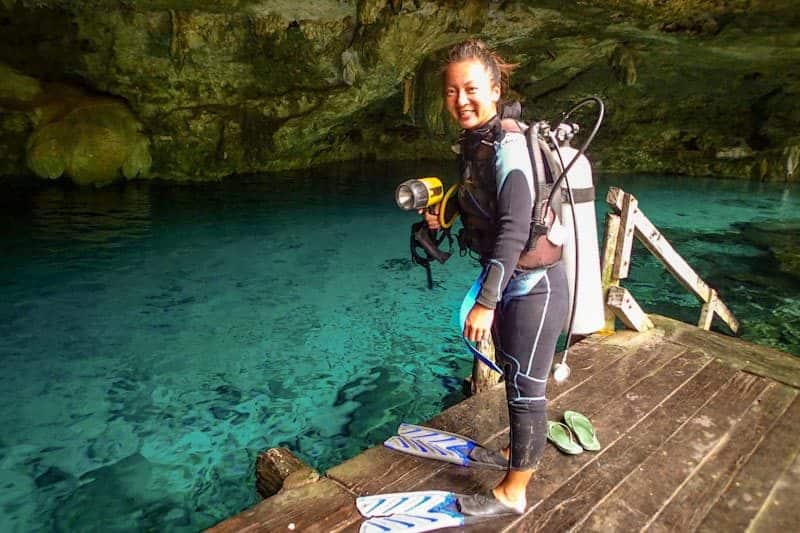
I loved everything about scuba diving. I loved the peace and tranquility of being underwater, floating in the blue in pure silence. I loved the excitement and joy I felt when I discovered new marine species. I loved meeting other scuba divers from around the world—they were just awesome—vibrant, adventurous, energetic and full of life.
So when my trip neared its end, I started asking around and gathering information about working in diving—but it didn’t long for me to decide on a new career path!
I headed to Bali to start the first step of the professional training, the PADI Divemaster course.
Bali was where I first fell in love with scuba diving ten years prior, and it felt natural to circle back to the place where I started diving. And my life has been nothing short of a dream ever since.
Working as a scuba instructor has afforded me opportunities to live and work on some of the most beautiful islands, save money to travel, and do what I love.
But I don’t want to convey an embellished tale that being a scuba instructor is all rainbows and unicorns. It is a job, after all. And as with any other job, it has its shares of ups and downs.
Read on to learn about the life of a PADI instructor—I will share with you everything you need to know about becoming a scuba instructor, what you should expect, and tips on things to consider along the way!
What Is a Scuba Instructor?
In case you are unfamiliar with the PADI’s curriculum, let me start from the beginning.
There are 3 basic recreational levels: Open Water, Advanced Open Water, and Rescue (which includes Emergency First Responder qualification). With these certifications, you can dive for “fun,” but cannot work as a professional.

Once you have completed all the recreational level programs, then you can take the first program inside the “professional” category, which is the Divemaster internship. In PADI Divemaster program, you will learn skills to assist divers in various situations above and underwater.
Once a Divemaster, then you qualify to enter the Instructor Development Course (IDC) towards becoming an instructor. Don’t worry – this is just a brief overview – I will go more in detail about the IDC and what you need to know in the following sections.
Unlock FREE Flights and Hotels!
Credit cards aren’t just for spending—they’re your ticket to epic travel rewards!
By using the right card for your everyday purchases, you could earn points for free flights, hotel stays, and more. No tricks, just smarter travel. Ready to see how?
So What Is the Difference Between Divemaster and Scuba Instructor?
PADI Divemaster and PADI Instructor are both considered dive professionals, which means you can work in the dive industry.
The difference is, however, that as a Divemaster you cannot teach courses without the supervision of an instructor. You can guide certified diving guests, or assist on courses – but you cannot teach students entirely on your own.
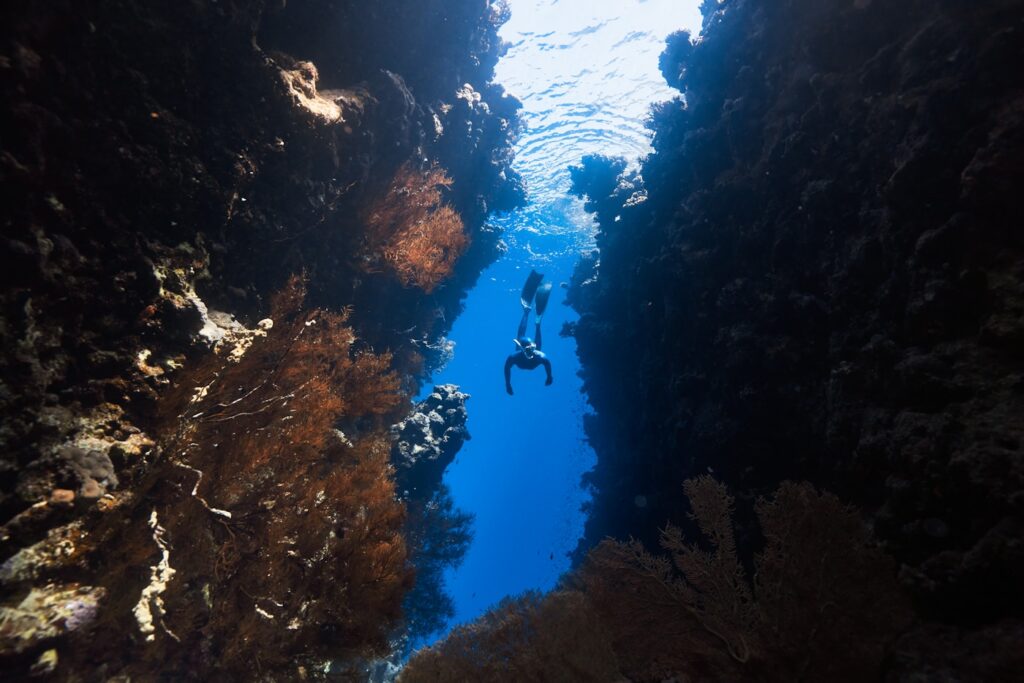
As a PADI scuba instructor, your primary responsibility will be to provide PADI curriculum and training to the students, whether they want to become an Open Water, Advanced Open Water, or a Rescue diver or anything in between.
Notice that I didn’t say your job is to make divers out of your students – because the only thing you can do is to deliver the training required to become a diver – your students may not succeed in completing the course for one reason or another, and that may be out of your control.
How You Can Become a Scuba Instructor
To become a scuba instructor, you must participate in the PADI Instructor Development Course (IDC) and pass the PADI Instructor Examination (IE).
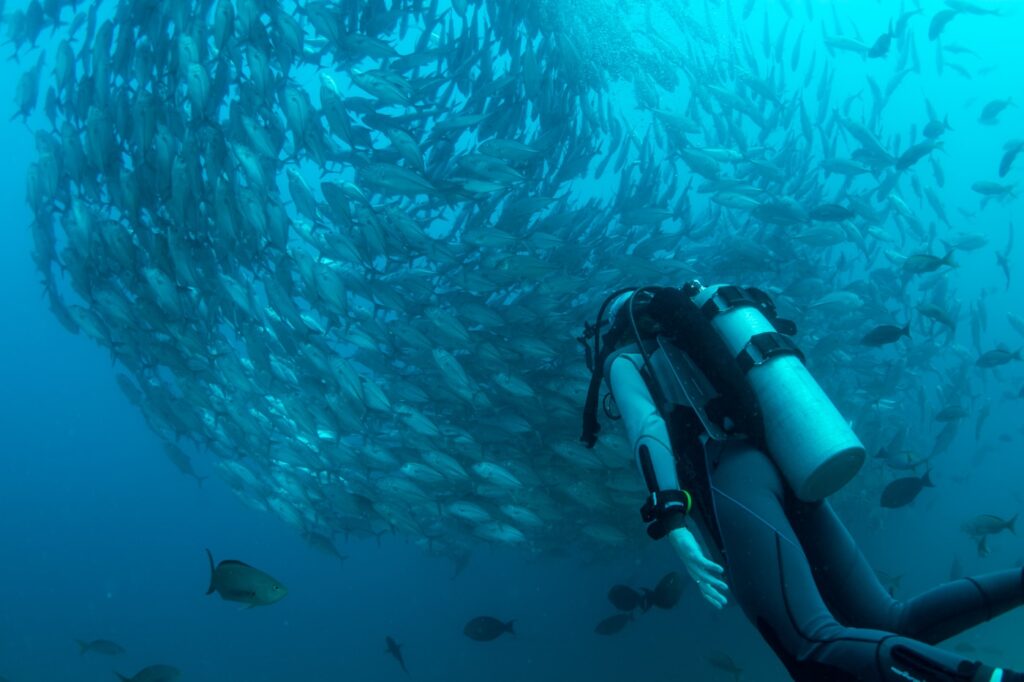
Pre-requisites and Requirements
We already talked about obtaining a PADI Divemaster certification before you can become an instructor. But here is a complete list of requirements you must meet before enrolling in the IDC:
- Be a certified diver for at least 6 months
- Have at least 60 logged dives and 100 dives before attending an IE (Instructor Examination)
- Emergency First Response Primary and Secondary Care (CPR and First Aid) training within the past 24 months.
- A medical statement signed by a physician within the last 12 months
- Be a PADI Divemaster*
Tip: When doing your Divemaster training, I encourage you to
1) select a destination that offers various underwater conditions (such as current) and
2) take as long as you can gaining diving experience in these diverse conditions.
If you plan to work as a dive professional, it is critical that you are comfortable and confident in managing yourself in all kinds of underwater conditions (especially current) before putting yourself in a position to be responsible for someone else’s life.
My PADI Divemaster training in Bali was designed for a month, but I stayed for one additional month to get as much hands-on experience as I possibly could. And I left only because my 60-day visa expired! Otherwise, I would have stayed even longer.
Inside the PADI Instructor Development Course (IDC)
A PADI Instructor Development Course is structured to prepare you to teach PADI courses, so the majority of the training will focus on teaching an open water diver. You will learn how to make presentations to an audience, demonstrate skills underwater, and ensure the safety of new divers.
You will spend most of your time in:
- a classroom to review dive theories and taking exams;
- a pool to practice dive skills to teach your students; and
- the ocean to learn how to manage new divers with various challenges and teach students proper buoyancy and other pertinent dive skills.
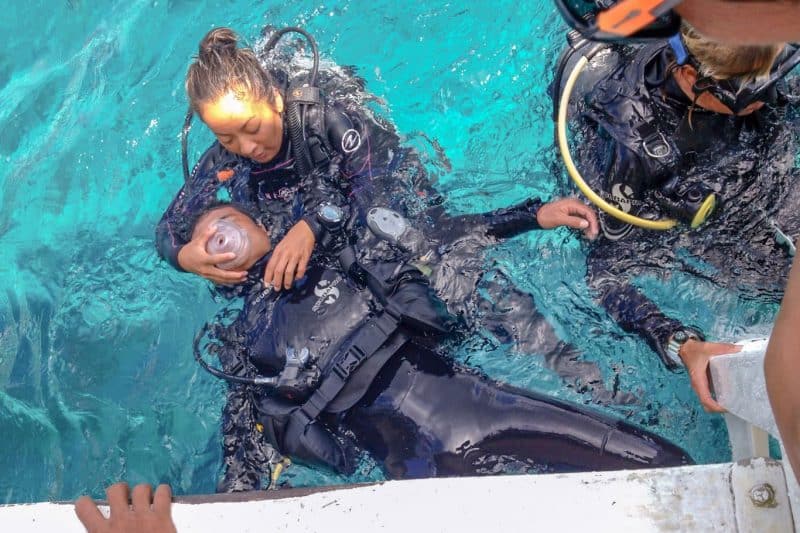
Unlike the PADI Divemaster program, you will not have any interaction with real guests or students during the IDC.
You will be practicing in a “pretend” PADI program where you will develop your teaching and presentation skills with other IDC participants and instructors. Most IDC training is about two weeks long.
PADI Instructor Examination (IE)
Upon completion of your PADI IDC, an assigned examiner will evaluate your comprehension of the dive theories and PADI standards, ability to present course materials, and demonstrate water skills. You will be tested and scored in five areas, all of which you must pass to become a scuba instructor.
The Instructor Examination (IE) generally takes 2 days.
How Much Does It Cost to Become a Scuba Instructor?
Dive centers will offer IDC packages with various inclusions and exclusions.
When you shop for IDC programs and compare prices, make sure you are comparing apples to apples – not apples to oranges. For example, some packages may include PADI IDC crew pack (materials you will need for the course), others may not.
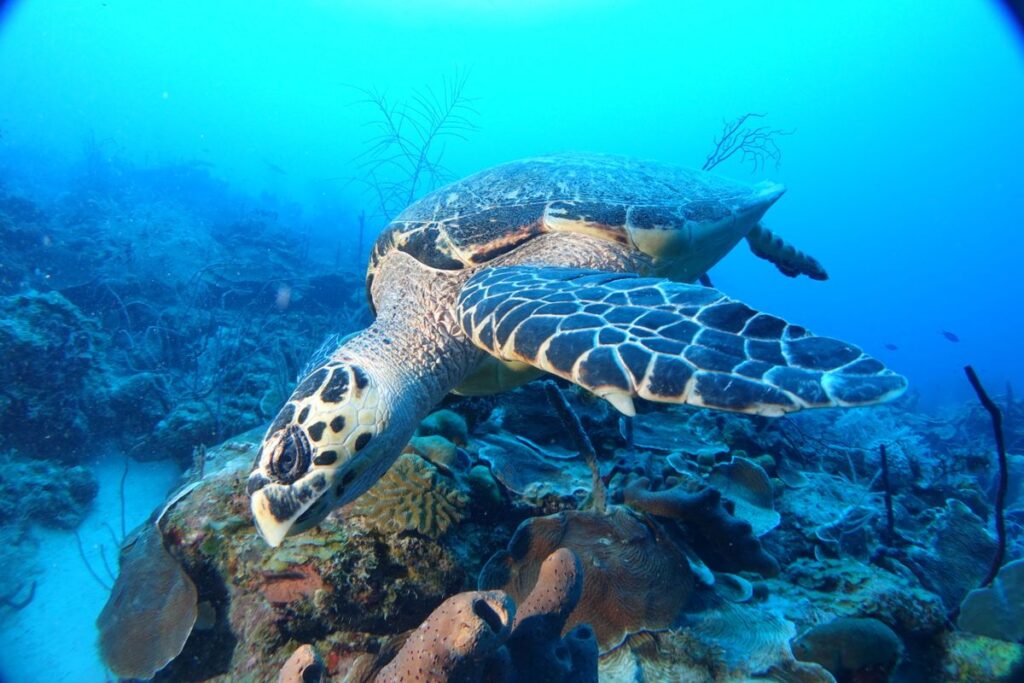
Here is a list of general fees associated with a basic IDC program, materials, and application (in USD):
- IDC training (this can vary, but generally around $1500 for a 2-week program)
- Emergency First Response (EFR) Instructor Course $200
- Instructor material $500
- PADI application for IDC & EFR $310
- Instructor Exam fee $635
- PADI Active Teaching Status fee ~$300
Total = $3,445
Keep in mind that there are other associated costs, such as your DAN insurance (which I highly recommend), your diving equipment, and any living/travel expenses.
How to Shop for an IDC
The best way to choose the dive center to do your IDC is to solicit recommendations from other instructors.
It probably helps to narrow down to a geographic area such as Asia or Central America – then start asking around. Although not necessary, some factors you may consider for choosing your IDC location are PADI Career Development Center status and the Course Director.
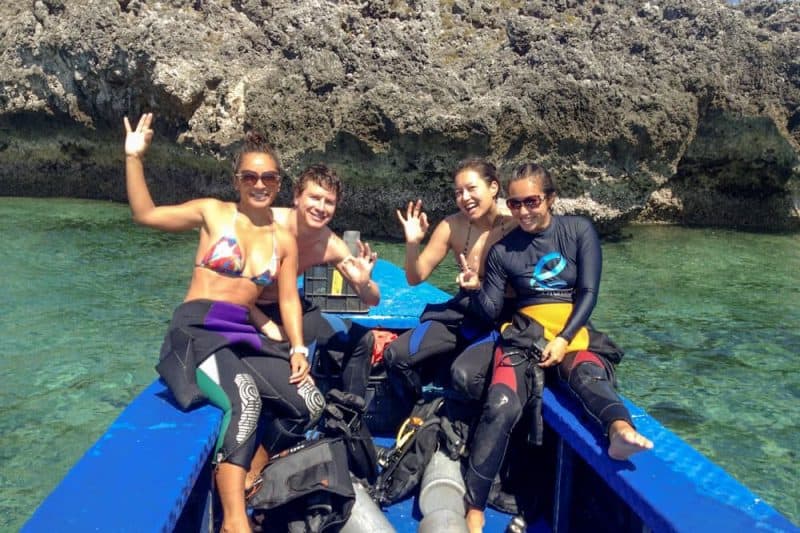
A dive center that is classified as a 5-star Career Development Center is recognized by PADI as providing high-quality professional training and demonstrating a commitment to enhance career opportunities for dive instructors. Usually, a PADI career development center offers continuation programs such as MSDT internships and PADI specialty courses.
A PADI Course Director (CD) is the instructor of future instructors, who is ultimately responsible for equipping YOU to become a scuba instructor. You want to make sure that your CD is reputable, experienced, and fun too! You may notice that some CD’s have a Platinum Course Directors status – this means that they have been awarded the highest ranking by PADI for training and certifying the most number of instructors.
If you choose a Platinum Course Director, it means that you will be trained by some of the most experienced and knowledgeable instructor trainers in the world. You should also inquire about the PADI Staff Instructor team that will assist in your IDC.
Depending on your program, an IDC Staff Instructor can play a significant role in your training as well.
Tip: Unlike your Divemaster program, the IDC does not give you much time to dive for fun.
So when selecting your IDC location, do not prioritize the quality of diving. Instead, prioritize the quality of training.
For example, it wouldn’t matter that your IDC is in the Maldives because you will barely have time to enjoy the crystal clear waters and dive with the reef sharks, marble rays and tropical fishes! Also, I encourage you to consider adding an MSDT internship after you pass your IE.
Some PADI dive centers offer a program that will lead you to a Master Scuba Diver Trainer (MSDT) status. An MSDT is a rank that shows the instructor has obtained a minimum of 5 specialty ratings and 25 teaching certifications.
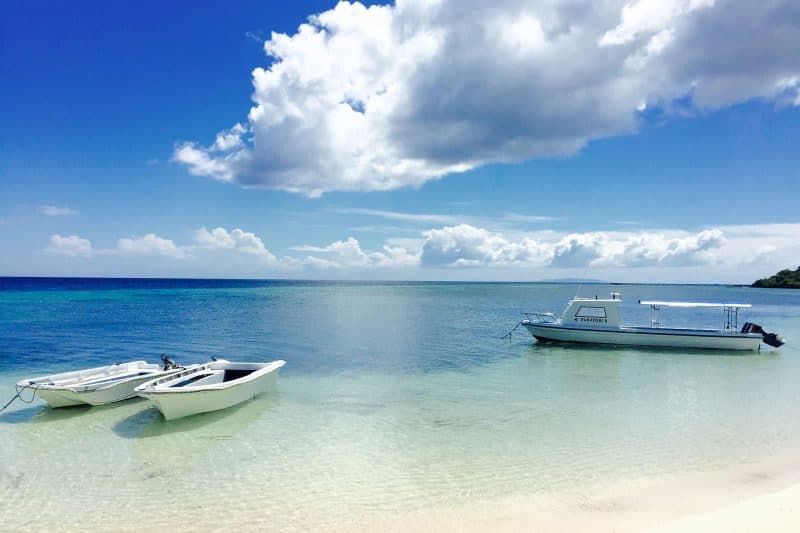
Having a Specialty Rating allows an instructor to teach a specialized topic within diving such as diving deep (to 40m), diving with Nitrox, diving a shipwreck, etc. To get this MSDT rating, you will “shadow” other experienced instructors, assist in courses and get hands-on experience with delivering the PADI curriculum.
When I did my IDC in Phuket Thailand, I signed up for an additional MSDT program and I’m so glad I did! Frankly, I did not feel ready to start teaching an entire PADI program to newbies only after 2 weeks of IDC! So I wanted to spend a bit more time observing other instructors teach PADI courses and being mentored on delivering PADI instruction.
After completing my 2-week IDC and passing the IE, I spent almost 2 additional months shadowing other instructors, learning the PADI standards, and practicing teaching PADI programs (and yes, this was an added cost to the IDC). For me, the added cost was worth every penny, as the internship helped me become a better informed and equipped instructor by the time I got my first official job!
How to Get a Job as a Scuba Instructor Abroad
As with any employment, connections, timing and your qualifications are factors that contribute to a job offer.
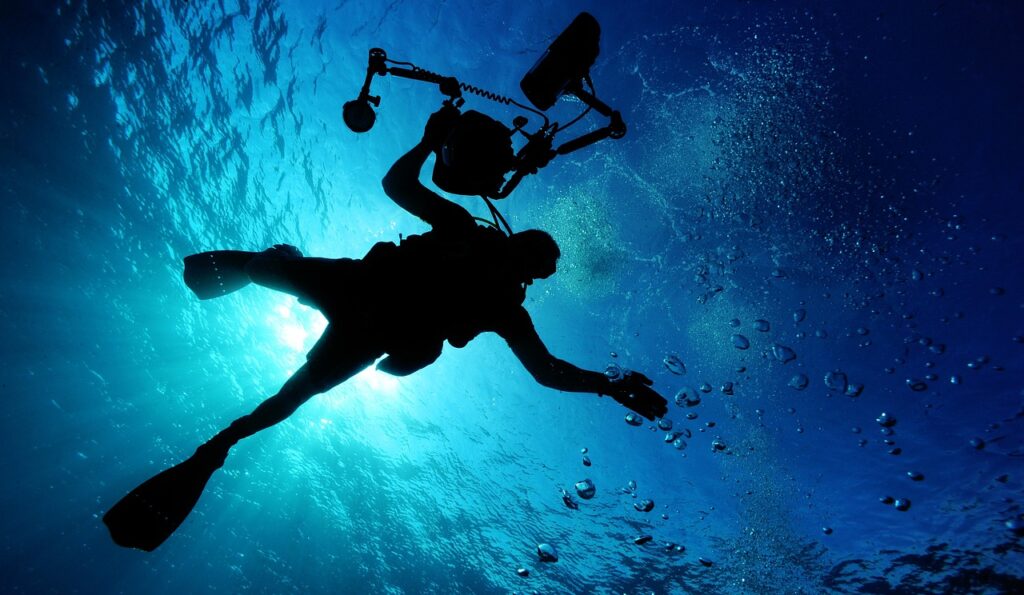
- Online resources: When you are qualified and ready, you can join FB group boards (believe it or not, I found a job this way), scour through online employment boards and also check out PADI’s employment board (which you will have access to once you become a PADI Divemaster).
- Network: I know of a lot of instructors who ended up working at the dive center where they completed their training. If you are serious about getting a job as a scuba instructor, start making connections early with anyone and everyone associated with the dive industry (dive shops, cruises, travel agency, etc.).
- Additional Skill sets: While not absolutely necessary, it will help boost your resume if you have skills to offer other than scuba diving. Languages are an enormous asset, especially if you can speak Mandarin, French, or German. Other desirable skills include management, IT, sales, marketing, photography, etc.
When I got my first job as a scuba instructor in Bali, I was hired as a “Japanese instructor” – it was my bilingual skills that got my foot in the door.
Years later, my management background from my “previous life” in NYC combined with my scuba instructor experience qualified me to work as a Dive Center Manager in some of the prestigious dive resorts in the Philippines and Indonesia. So I highly recommend that you make yourself as marketable as possible!
The competition in scuba diving is fierce.
Tip: When looking for a job as a scuba instructor, you may also consider these factors:
– Weather. How cold is the water temperature? Will you need a dry suit? Are there monsoon/typhoon seasons? Where can you go to work during these “off-season” periods?
– Work contract. Does your employer require dive insurance? Will your employer provide a work visa, paid holidays, accommodations, etc.?
– Cost of living. How much will you incur in living expense? Some jobs on cruise ships and resort islands generally offer full board contracts, which means your room and food will be covered.
The Reality of Working as a Scuba Instructor Abroad
Ok, now I’m going to get real. Remember I said working as an instructor isn’t always rainbows and unicorns? Well, we’re going to get to that now.
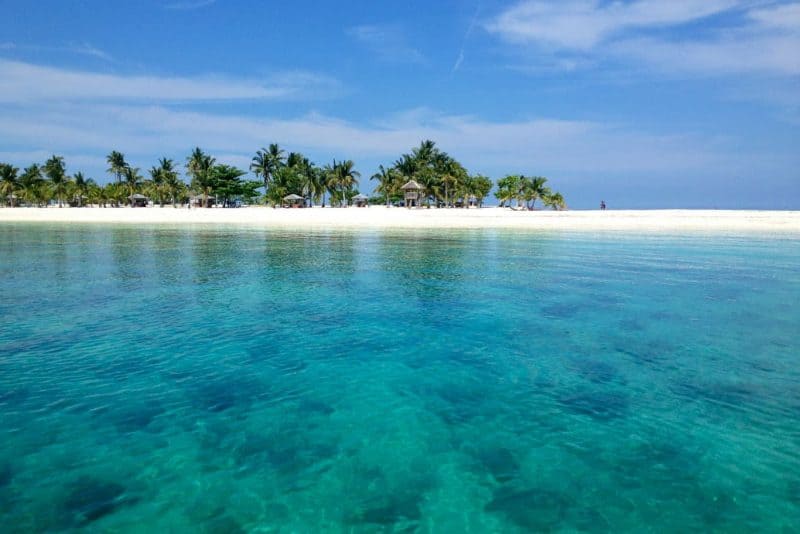
Don’t get me wrong, I have loved working in diving. I have lived on some of the most beautiful islands that I only ever dreamed of. I’d do it all over again in a heartbeat.
But living in paradise, waking up on a beach and having a bronze tan year-round DOES come with its share of challenges. Here are some things you should keep in mind about working as a dive instructor.
1. Your Dive Skills Will Not Make You a Great Instructor
No matter how fantastic you are underwater, you will suck at being an instructor if you lack interpersonal skills.
Scuba diving should be a fun, social sport. The vast majority of people sign up for scuba diving courses or trips while they are on their vacation. If you cannot interact with your guests in a way that makes learning fun, leave them smiling and having the time of their life, you have failed at your job.
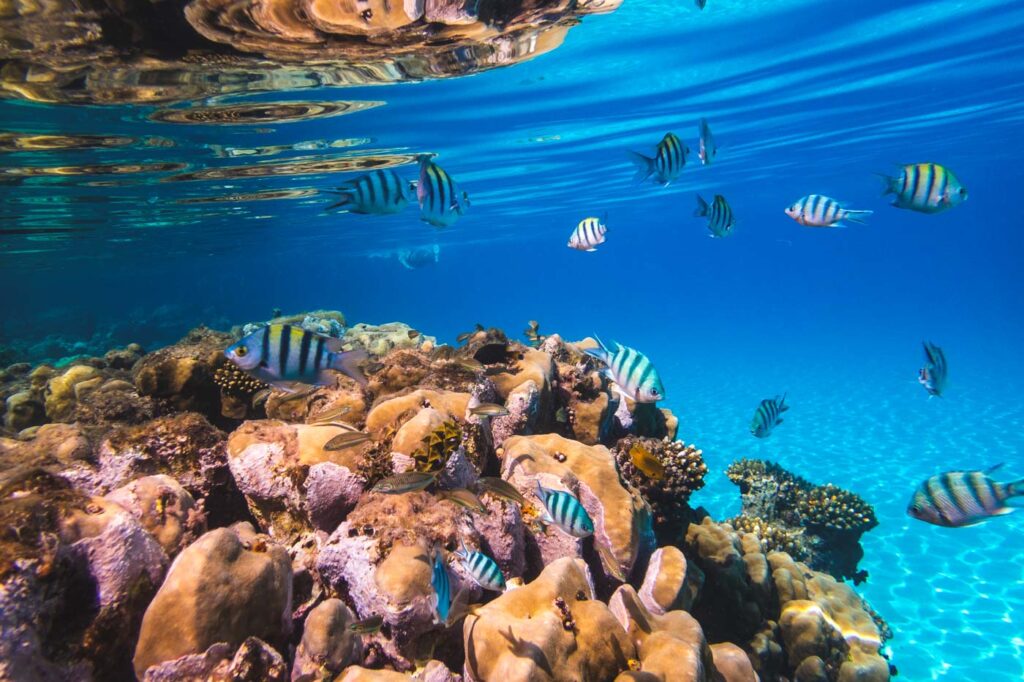
And since diving is a “customer service job,” you must be able to deal with a spectrum of personalities and character traits. As someone who represents PADI, you must maintain your cool at all times, no matter how much of an a** your guest is. And believe me, there are plenty out there!
Make sure you got people skills down before you work on your dive skills.
2. You Will Never Get Rich.
This is a given in the diving industry.
You will never meet a millionaire (not a one) who made their wealth from working in diving. You will hear dive professionals say “you don’t do it for the money, you do it for the lifestyle.” That pretty much sums it up.
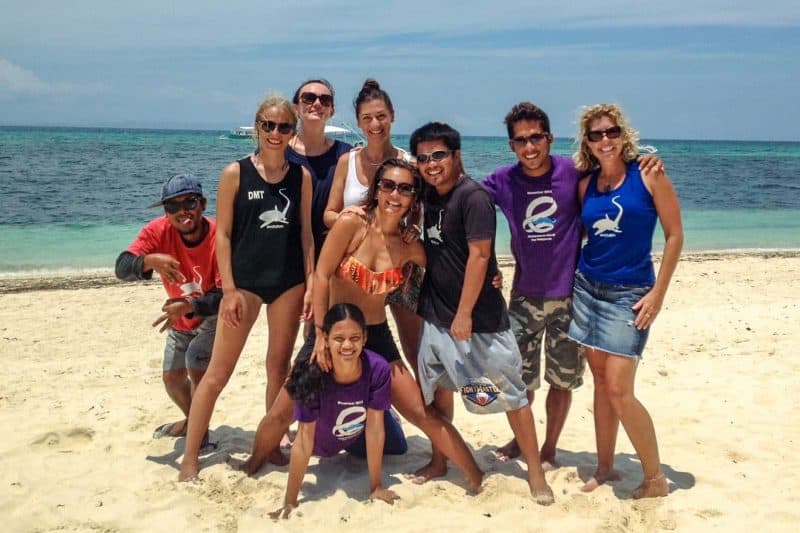
Now, that’s not to say you can’t make a decent living from being an instructor – if you’re lucky you will be able to find work that will allow you to save money to travel, fly home now and then, and even buy some new bikinis :).
The salary can vary significantly depending on where in the globe you work, the nature of your contract, your title, your experience level, etc. so it’s hard to generalize how much money scuba instructors make. This is the most frequently asked question, yet it’s nearly impossible to answer because it depends on so many variables. But one thing that is certain is that you will not be rolling in dough.
3. Get Used to Working Some LONG Hours.
As a scuba instructor, teaching PADI courses is just one aspect of the job – you will probably have work more out of the water doing things like filling out paperwork with your student (exams, quizzes, dive log), doing office and admin work (emails, blogs, social media), washing or maintaining equipment, filling tanks, interacting with potential customers, etc.
Working 6 days a week is an industry standard.
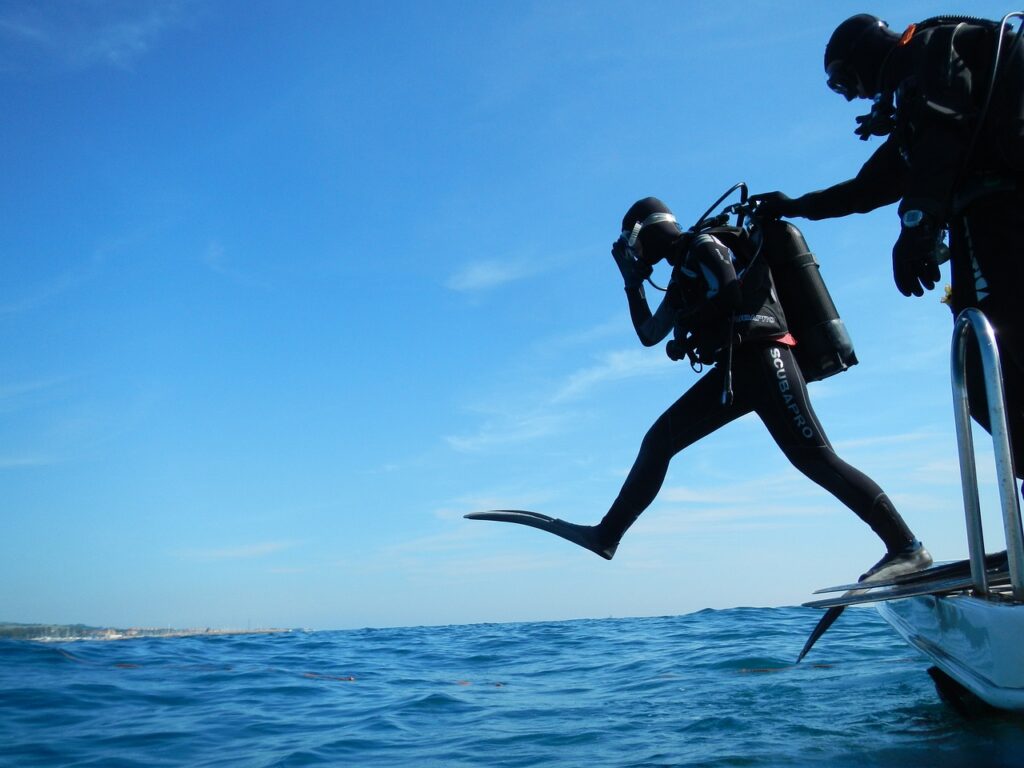
I have never met an instructor (working on a full-time contract) who worked less. You can also expect to work on average, 10 hours a day. I had one job as an instructor in Bali that required me to report to work by 06:30. And most days, I didn’t get done with work until about 18:00, nearly 12 hours later.
When I worked on an island called Malapascua in the Philippines that was renowned for thresher shark dives at sunrise, we had to be at work by 05:00! OK, that was an exception, but in this industry, you need to be prepared to work under all sorts of conditions.
Once upon a time, I said I was done working 9-5. Well, be careful what you wish for!
Final Thoughts on Working Abroad as a Dive Instructor
I hope this post gave you some insight into the work of a scuba instructor and what it takes to become one and be one. It is not an easy job by any stretch of the imagination, but if you love what you do, I say there is no greater gift.
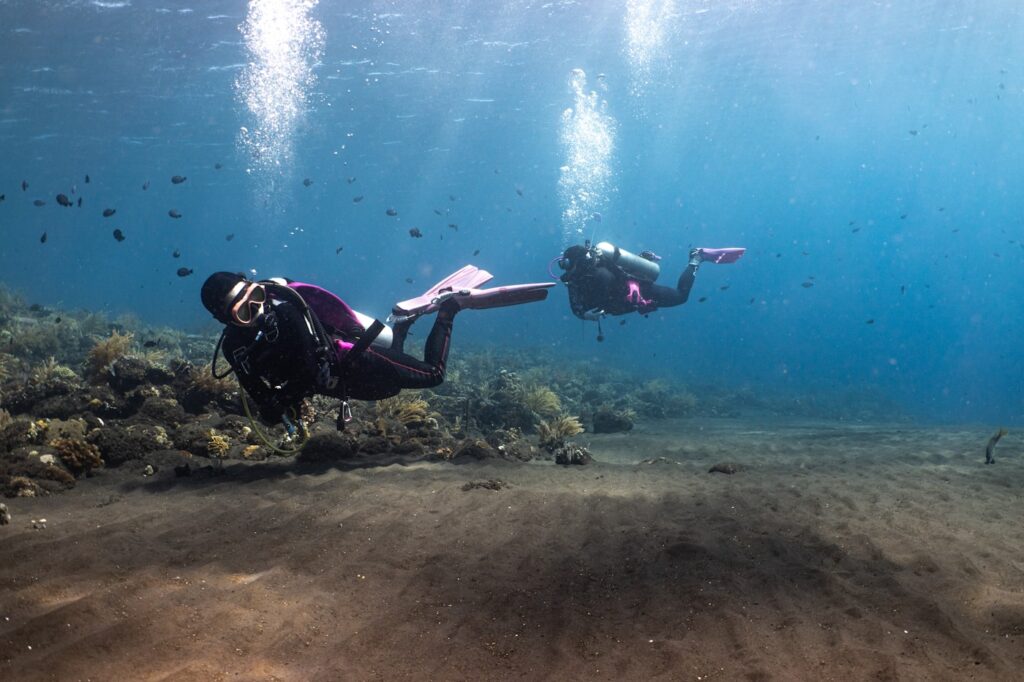
If you love being in the ocean, meeting people from around the world, sharing the joy with others, and living in a tropical climate, you are on your way to joining the mermaid club!
More on Working Abroad
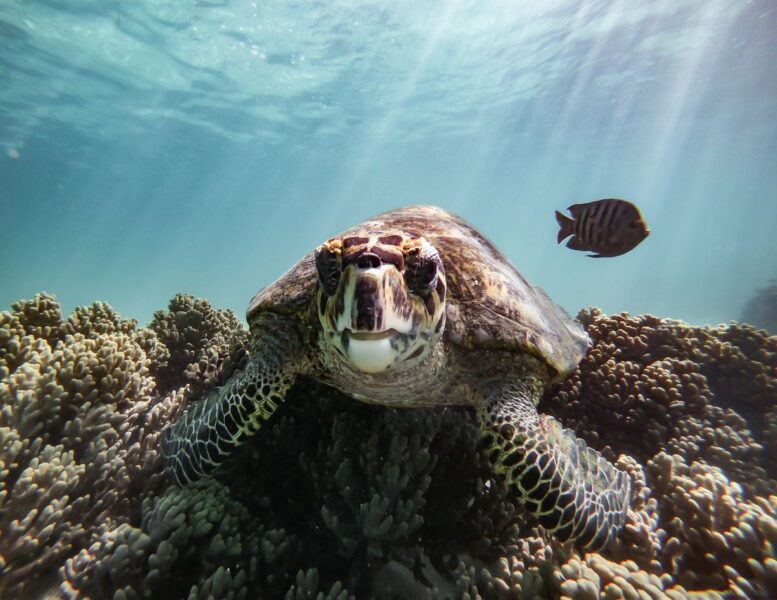
Read more about living and working abroad:
- 26 Digital Nomad Jobs: Best Remote Jobs for Travelers!
- 10 BEST Digital Nomad Jobs For Beginners
- 73 Travel Jobs—How to Make Money While Traveling!
- 56 Work From Home Websites—Earn Money Outside the Office!
- 20 Online Jobs With No Experience Needed!
- How to Start Freelancing for Beginners—Work Online & Travel!
- All Articles About Living and Working Abroad
More Jobs Abroad
Would you become a dive instructor? Where would you love to live and teach? Let us know in the comments!
>>> Bio
Mo is a Bali-based scuba instructor whose current passions include coconut ice cream, rescuing street dogs and sharing her travel tips, guides, and resources on her website, Travelust 101. You can follow Mo’s paradise adventures on Instagram and Facebook.
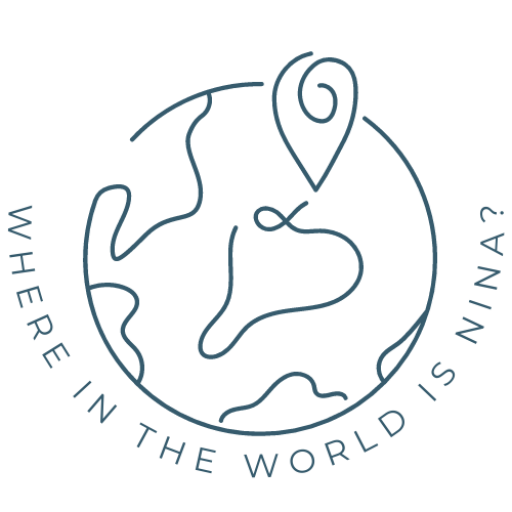
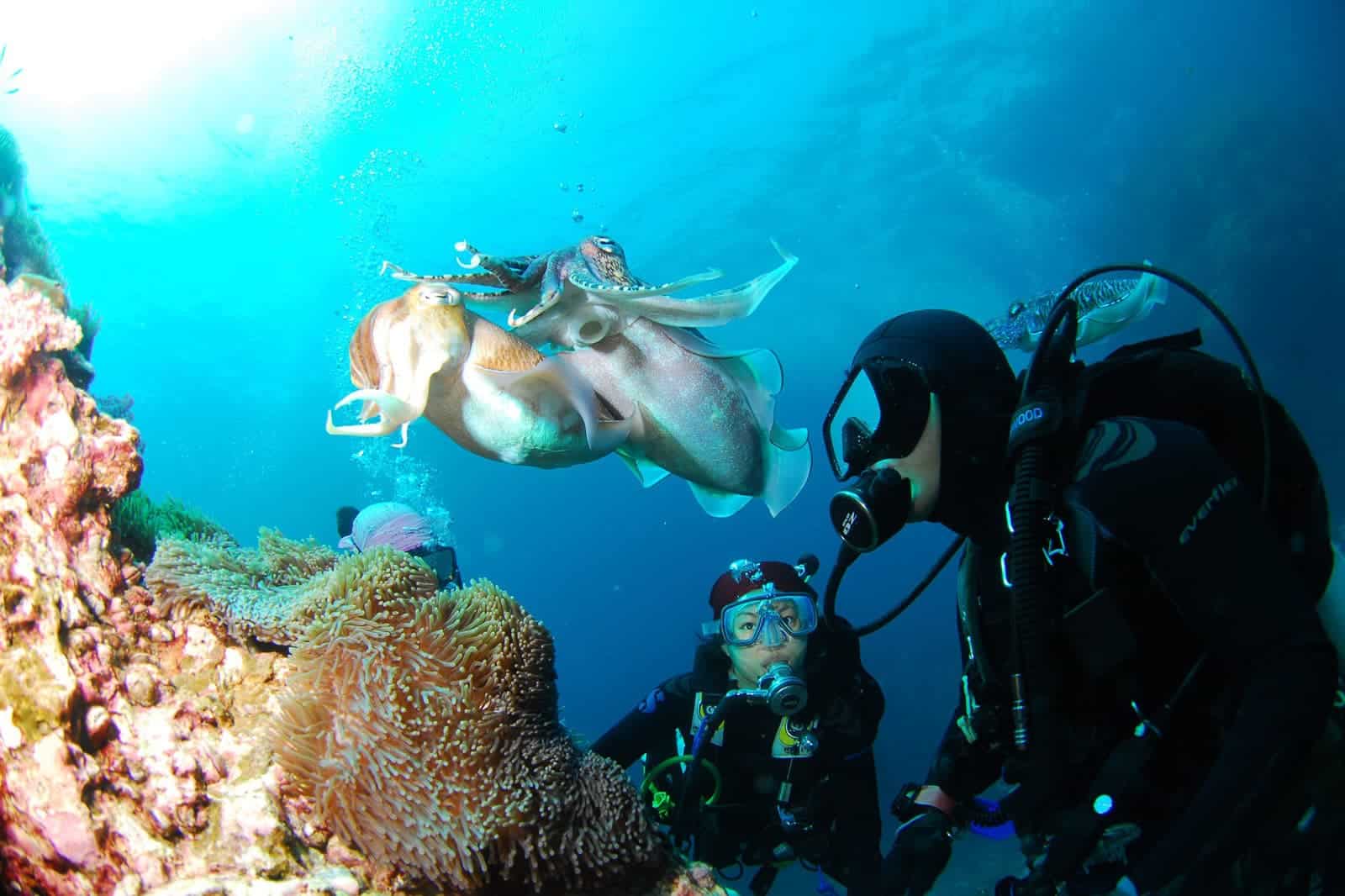


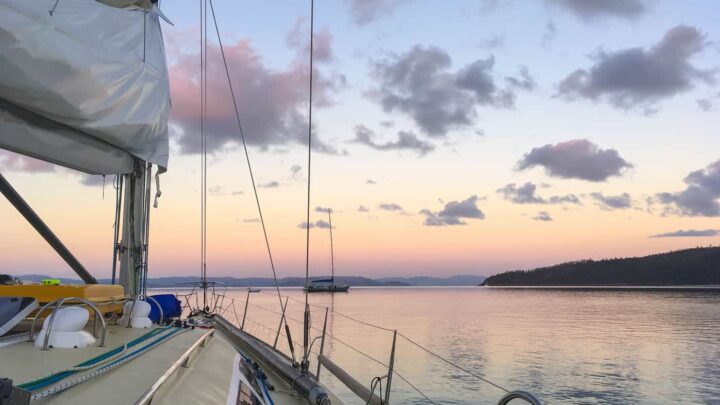

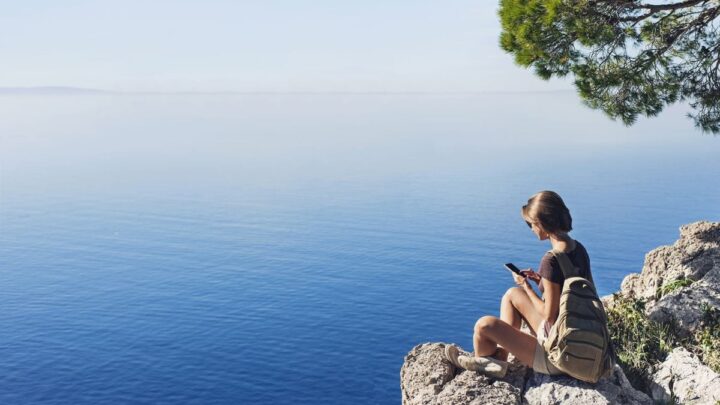
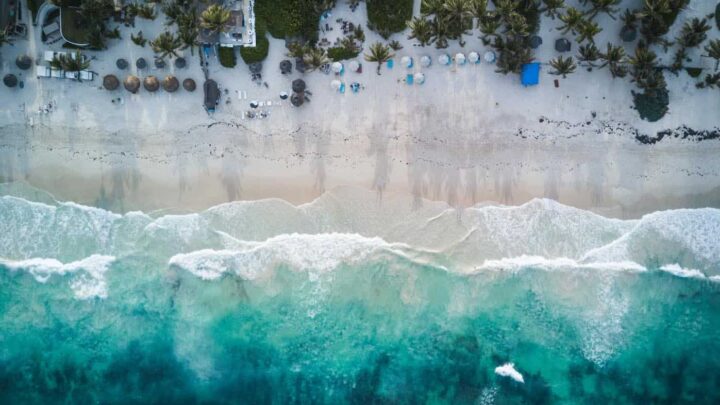

Thank you for sharing 😉